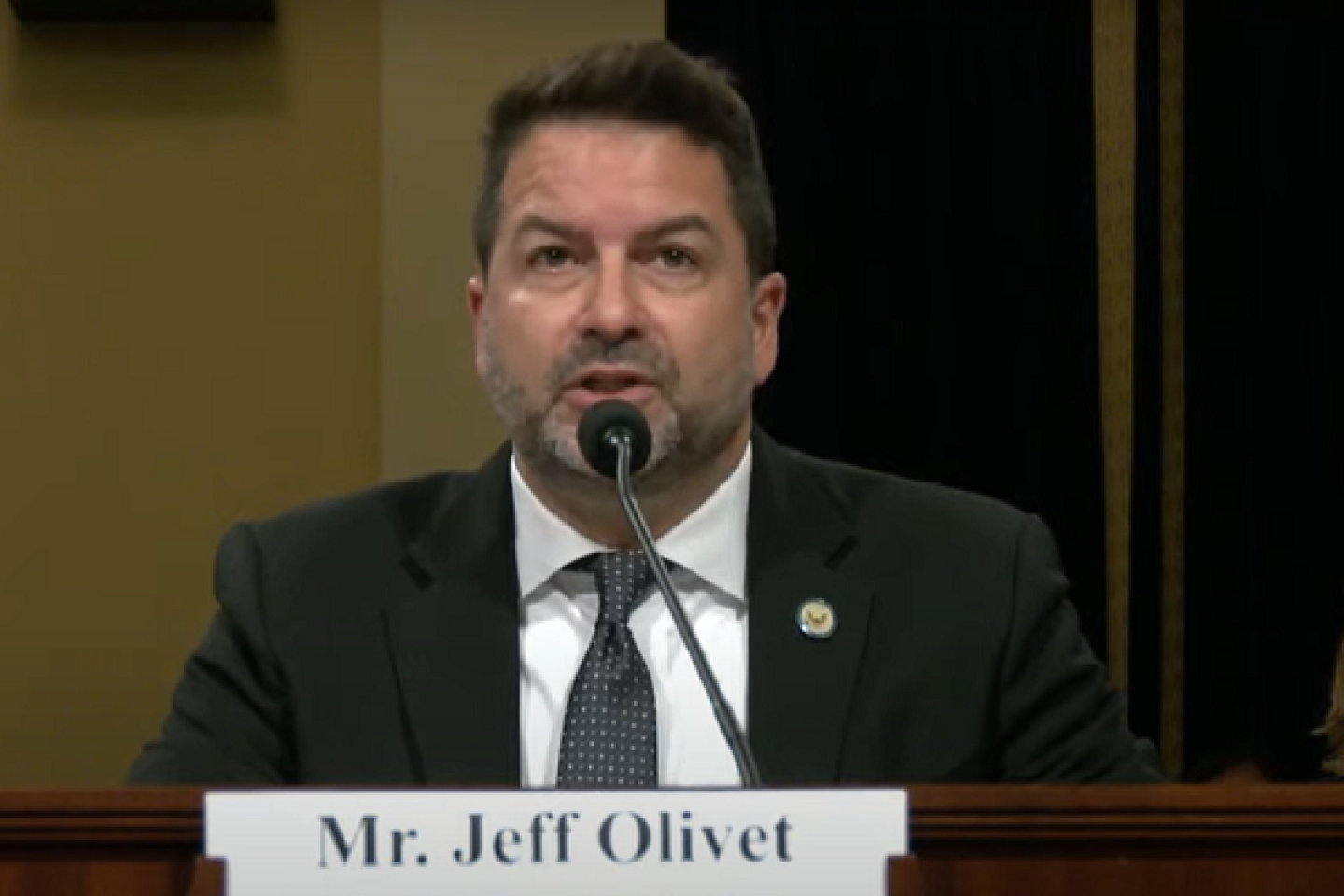USICH Testifies During Congressional Hearing on Veteran Homelessness
On Thursday, USICH Executive Director Jeff Olivet testified in a Congressional hearing on the use of data-driven methods and community collaboration to reduce veteran homelessness.
The hearing was held by the U.S. House Veterans Affairs Subcommittee on Economic Opportunity, and other witnesses included Dr. Thomas O’Toole, the deputy undersecretary for health for clinical services for the U.S. Department of Veterans Affairs (VA). (Click to watch the full hearing.)
In his opening statement, USICH Director Olivet cited the short- and long-term trends of veteran homelessness, recent communities that ended veteran homelessness, and federal efforts to address the crisis.
Read Director Olivet's opening statement (as prepared) below. For his full written testimony, click here.
Good afternoon, Chairman Van Orden, Ranking Member Levin, and distinguished subcommittee members. I am Jeff Olivet, Executive Director of the U.S. Interagency Council on Homelessness (USICH). It is an honor to appear before you today. I am here to discuss the nation’s homelessness crisis and the administration’s current and planned work to prevent and end it.
As the sole federal agency dedicated to eradicating homelessness, USICH holds a unique position. Our agency leverages the collective strength of 19 other federal agencies to orchestrate the federal response to homelessness. Our member agencies oversee more than 30 programs aimed at homelessness and numerous others that help individuals grappling with poverty and housing instability. Our team of Senior Regional Advisors, strategically positioned across the country, collaborate directly with mayors, governors, and service providers in various regions, ensuring the efficient, effective, and compassionate use of resources.
The story of USICH is a testament to the power of bipartisan collaboration. In 1987, large majorities in Congress, transcending political lines, passed the Stewart B. McKinney Act, later renamed the McKinney-Vento Homeless Assistance Act. This law, signed by President Reagan, recognized the complexity of coordinating federal efforts to address homelessness. It was a clear message that homelessness is a cross-system problem that requires cross-system solutions. No single agency, system, sector, or jurisdiction alone can end homelessness.
Even just one veteran experiencing homelessness is a tragedy. It is unacceptable that anyone who has served this country in uniform leaves military service only to experience the trauma of homelessness. According to the Department of Housing and Urban Development’s (HUD’s) 2023 Annual Report to Congress (AHAR), 35,574 veterans were experiencing homelessness on a given night. That is 22 of every 10,000 veterans in the United States. More troubling, the number of veterans experiencing homelessness increased by seven percent (2,445 more veterans) between 2022 and 2023. The increase included a 14 percent rise in unsheltered veterans (1,943 more veterans) and a three percent increase in veterans experiencing sheltered homelessness (502 more veterans). Despite increases in experiences of veteran homelessness between 2022 and 2023, the number of veterans experiencing homelessness is 52 percent lower than it was in 2010, the year that the federal government first set a goal to end homelessness, including among veterans.
Ending veteran homelessness means that homelessness among veterans is prevented whenever possible and is otherwise a rare, brief, and one-time experience. In the work to end veteran homelessness, one community I would like to highlight is the City of Dallas, Texas, which recently joined 83 other states and communities across the United States in formally declaring an effective end to Veteran homelessness through the achievement of the USICH Criteria and Benchmarks. The City of Dallas joined the Department of Veterans Affairs (VA) North Texas and community stalwarts Housing Forward and the All-Neighbors Coalition in formally declaring the effective end of homelessness for North Texas Veterans at Dallas City Hall on May 22nd. This was due to collaborative efforts and the HUD-Veterans Affairs Supportive Housing (HUD-VASH) program. In addition to the HUD-VASH program, the VA awards grants through the Grant and Per Diem program to eligible entities to provide transitional housing with wraparound supportive services to assist veterans with moving into permanent housing. This multifaceted approach ensures that the VA can meet the diverse needs of our veteran population and provide them with the necessary resources to rebuild their lives.
Finally, the Biden-Harris Administration has taken sweeping new steps that are beginning to yield results. Through the implementation of the White House’s Housing Supply Action Plan, more units have been under construction than ever before. In 2023, HUD announced that it helped more than 424,000 households connect to homeless support services, exit homelessness, or avoid homelessness altogether. In January, the VA announced that it had housed more than 46,000 homeless veterans, surpassing its goal for 2023.
The President’s 2025 Budget includes a plan to invest over $258 billion to build 2 million housing units, support millions of first-time homebuyers, guarantee housing vouchers for hundreds of thousands of extremely low-income veterans and youth aging out of foster care, and advance efforts to end homelessness. The Budget includes $20 billion in mandatory funding for competitive grants to incentivize State and local jurisdictions and Tribes to expand housing supply. The grants will fund multifamily developments, including commercial-to-residential conversions and projects near transit and other community amenities; support planning and implementation grants to help jurisdictions identify and remove barriers to building more housing; launch or expand innovative housing models that increase the stock of permanently affordable rental and for-sale housing, including community land trusts, mixed-income public development, and accessory dwelling units; and construct and rehabilitate starter homes.
Thank you for inviting me to be here with you today. I look forward to your questions.



